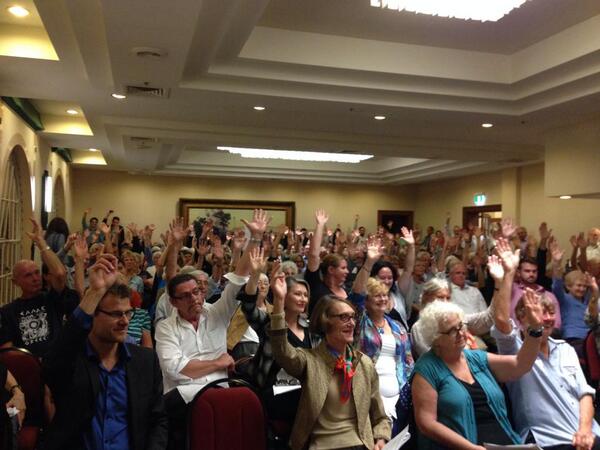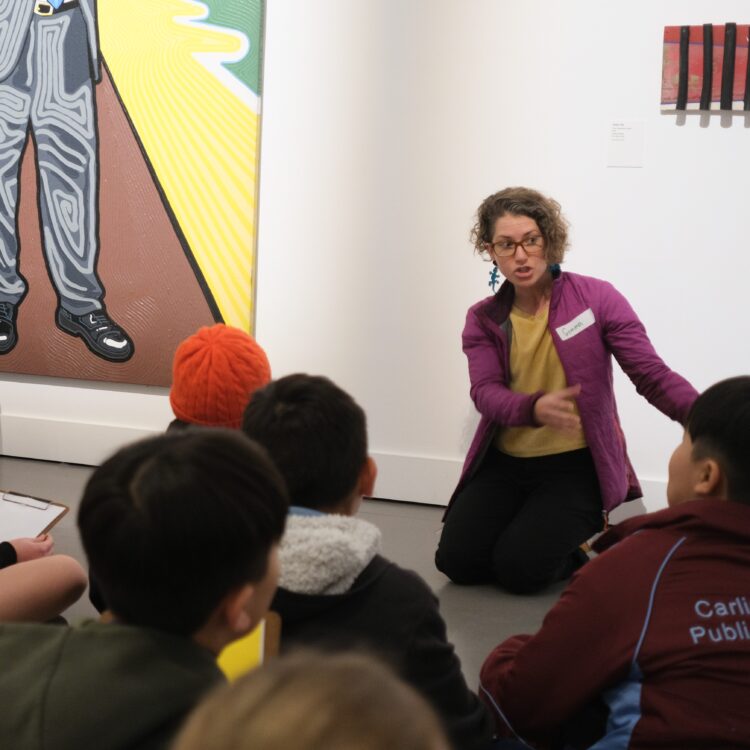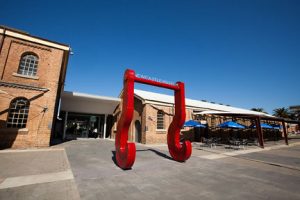
The crowd votes in support of four resolutions from the public meeting
Monday’s public meeting at Newcastle held no surprises. Attended by a passionate crowd of nearly 300 people, the audience unanimously voted to uphold four resolutions.
There was a heartfelt statement of support for the sacked staff, Judy Jaeger and Ron Ramsey, acknowledgement of the work undertaken by museum director Belinda Betts, and strong endorsement of the purchase of the Whiteley sculpture Black Totem II.
The group voted to request that the Commissioner of Taxation investigate the sculpture’s purchase–the issue which has ‘publicly’ led to the termination of Jaeger and Ramsey’s employment–to determine whether the transaction was in breach of taxation law and whether the Newcastle Art Gallery Foundation had acted outside its trust deed. Calls were also made on Newcastle City Council (NCC) to make public commissioning briefs and reports (including those from PricewaterhouseCoopers) that have been involved in the furore.
While processes around the purchase of the Whiteley sculpture were discussed at length, the meeting also focused on concerns about the impact of NCC’s new staffing structure for cultural services.
The meeting deemed NCC’s attempt to coordinate and integrate exhibitions and activities across museum, theatre and gallery programs as impractical and bound to fail.
NCC has stated that they are moving to amalgamate the management of their three cultural institutions–the museum, theatre and art gallery–under one Cultural Director position. This model does away with the current and specialised facility management structure, replacing it with a single manager, responsible for a global approach of engaging, co-ordinating and integrating exhibitions across all facilities ‘to promote Newcastle as a cultural destination whilst maintaining and growing the region’s unique collections’.
Aside from these skills being met by existing staff, the meeting deemed NCC’s attempt to coordinate and integrate exhibitions and activities across museum, theatre and gallery programs as impractical and bound to fail.
The plan is also questioned not just in terms of proposed fiscal savings but also in NCC’s ability to attract and secure an appointment of this calibre at a presumably reduced salary, required in order to meet the cost cutting imperative.
It was acknowledged that given funds are short and savings will need to be made, but those at the meeting questioned the wisdom of creating a costly umbrella position when other in-house solutions are cheaper, effective, have widespread local support and will deliver required savings.





